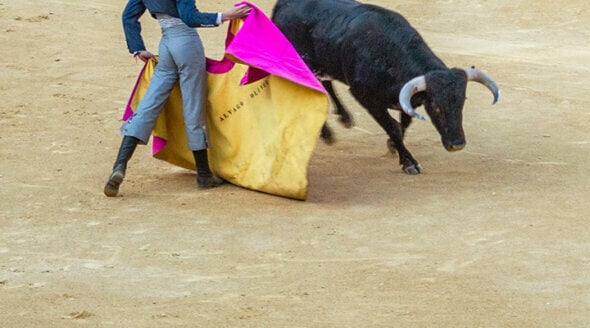Animals in Zoos: Condemned to a Life Behind Bars
Imagine not being able to control a single aspect of your life – when you eat, what you eat, when you sleep, where you can go or who you start a family with. That’s the reality for animals in zoos, who are turned into living exhibits. Some animals in zoos are kept in enclosures far too small for them, while others are forced to perform degrading tricks. Even in the best zoos, under the best conditions, a lifetime of captivity is no life at all for wild animals.
An Unnatural Prison
 In the wild, animals may roam for hundreds of miles, hunt their prey, raise their children, explore, play and enjoy complex social relationships. Yet in zoos, their lives are restricted to four walls. The confinement and lack of stimulation often result in abnormal and self-destructive behaviour, known as “zoochosis” – for example, pacing, walking in tight circles, rocking, swaying or mutilating themselves. Zookeepers sometimes give the animals anti-depressants, tranquilisers or anti-psychotic drugs to try to conceal their distress.
In the wild, animals may roam for hundreds of miles, hunt their prey, raise their children, explore, play and enjoy complex social relationships. Yet in zoos, their lives are restricted to four walls. The confinement and lack of stimulation often result in abnormal and self-destructive behaviour, known as “zoochosis” – for example, pacing, walking in tight circles, rocking, swaying or mutilating themselves. Zookeepers sometimes give the animals anti-depressants, tranquilisers or anti-psychotic drugs to try to conceal their distress.
There are also instances of shameful neglect at some zoos, with animals kept in barren, dirty enclosures with stagnant drinking water and no attempt to replicate their native habitat. It’s perhaps unsurprising, then, that there are numerous instances of frustrated animals trying to escape, sometimes with tragic consequences. For example, in 2012, a tiger escaped his enclosure in the Cologne Zoo and killed a zookeeper before being shot dead, while another tiger in the Czech Republic escaped and mauled three zoo employees. Bulls, chimpanzees and lemurs are just some of the animals who have recently tried to escape from UK zoos, showing how desperate these unhappy animals are to regain their freedom.
The Conservation Con
Zoos would have you believe that they are all that stand between many of the species they house and extinction, but animals are almost never released from UK zoos – and those who are rarely fare well since being reared in captivity leaves them ill-prepared to cope with life in the wild.
There is also strong evidence that many zoos “dispose” of “surplus” animals, either by killing them or selling them to unethical exotic-animal dealers. In one British zoo, the carcasses of slaughtered animals, including baboons and endangered deer, were left to rot beside bins.
The only effective and sustainable way to help endangered species is to protect their natural habitat, but the massively expensive breeding programmes of zoos divert money from genuine conservation projects. After all, what’s the point of breeding animals if they have no home left to go to?
Learning the Wrong Lessons
Zoos are hardly educational – the caged, lonely animals they house are so far removed from their natural context that they have little opportunity to follow their instincts. The only thing to be learned at these sad facilities is how animals who want to be free act when they are confined.
At the end of the day, zoos are businesses geared towards entertainment, not educational establishments. All they teach people is that it is acceptable to interfere with animals and keep them locked up in captivity, where they are bored, cramped, lonely and deprived of all control over their lives.
What You Can Do
Please don’t visit zoos! Withhold your money from these inhumane establishments that profit from exploiting animals. We can protect endangered species by supporting habitat conservation, not animal prisons.
If you want to learn about animals, watch a nature documentary that shows how animals behave in their natural habitat. Or look around you! Become an expert on the wildlife in your local area, from hedgehogs in your garden to birds flying overhead.
FACTBOX
- There are more than 400 zoos in the UK today and more than 10,000 zoos worldwide.
- More than three-quarters of British zoos are failing to meet minimum animal welfare standards, according to a recent study.
- Elephants in zoos generally live less than half as long as their wild counterparts.
- Tigers, elephants, chimpanzees and many other species have never been successfully released into the wild by UK zoos.

